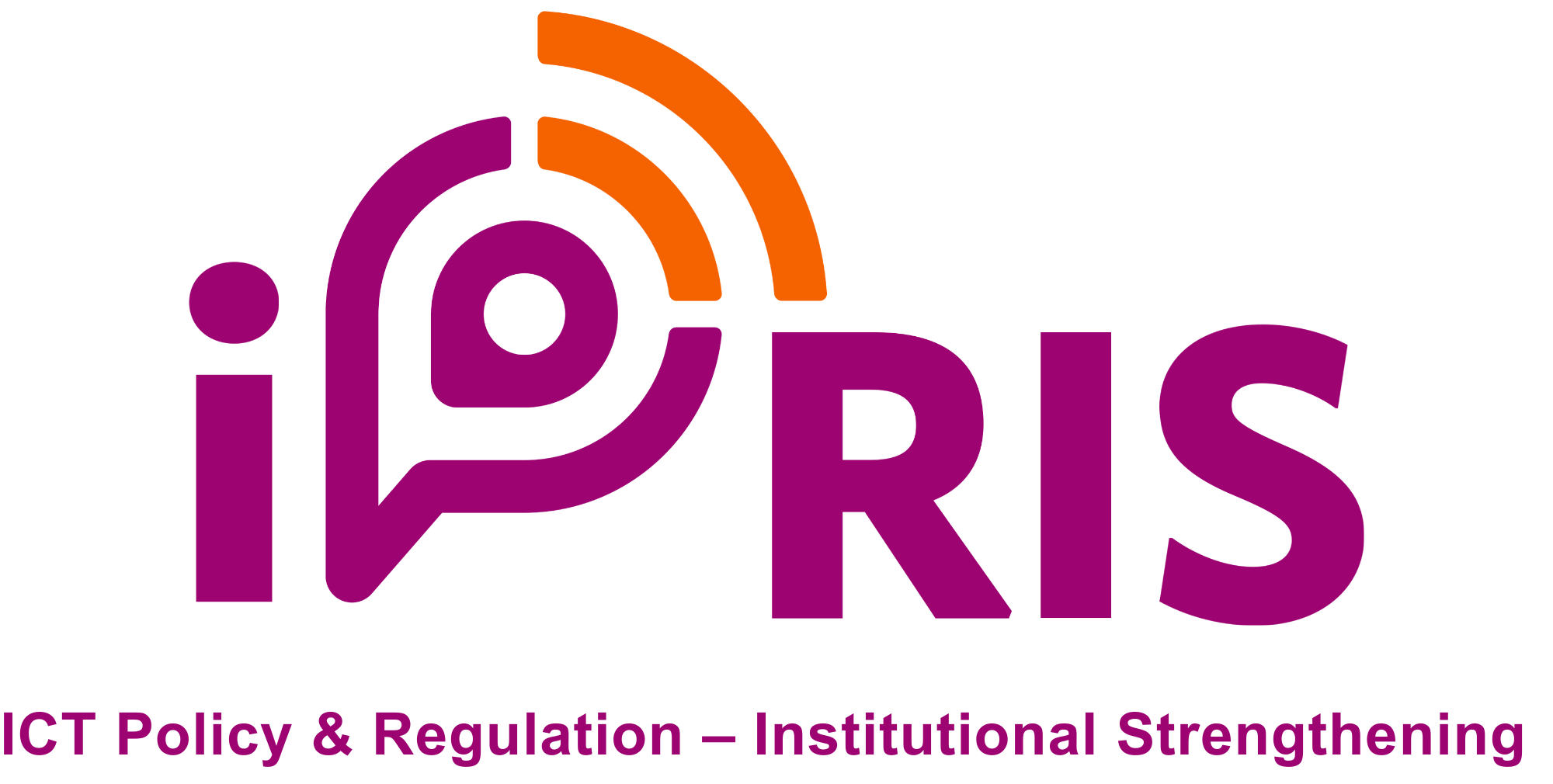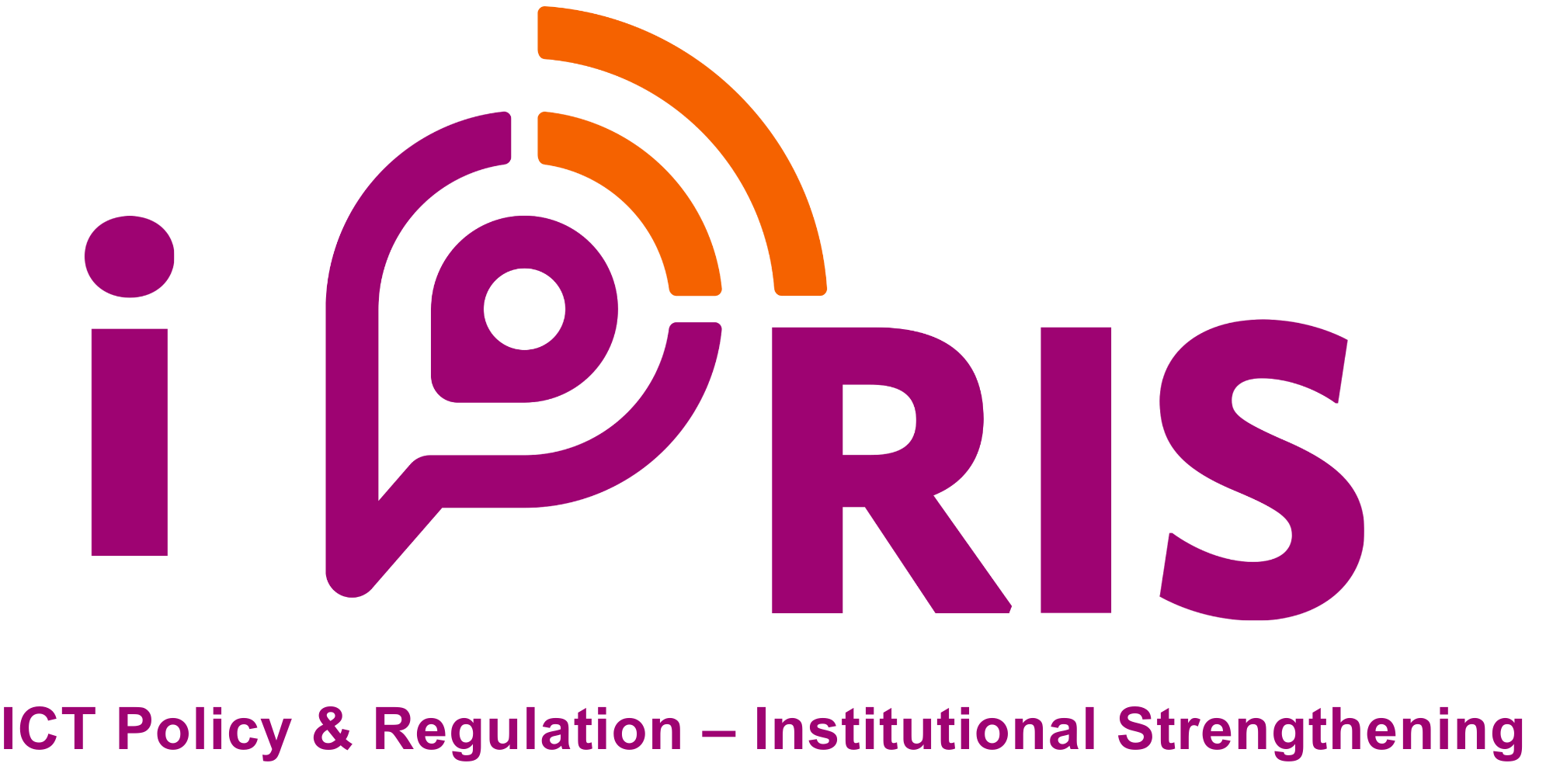- Gaborone
The iPRIS Africa Phase was held in Gaborone, Botswana, from 6 to 9 October 2025 for the project's fifth cohort. It marked the convening of six National Regulatory Authorities (NRAs) from Eswatini, Sierra Leone, Nigeria, Tanzania, Uganda, and Zambia, along with the Regional Regulatory Organisations [RROs] (CRASA, EACO, WATRA) and key iPRIS implementing partners from SPIDER and PTS. The Botswana Communications Regulatory Authority (BOCRA) hosted the meeting, marking a significant landmark in reinforcing institutional capacity and fostering region-wide collaboration in Africa’s digital policy and regulatory ecosystem.
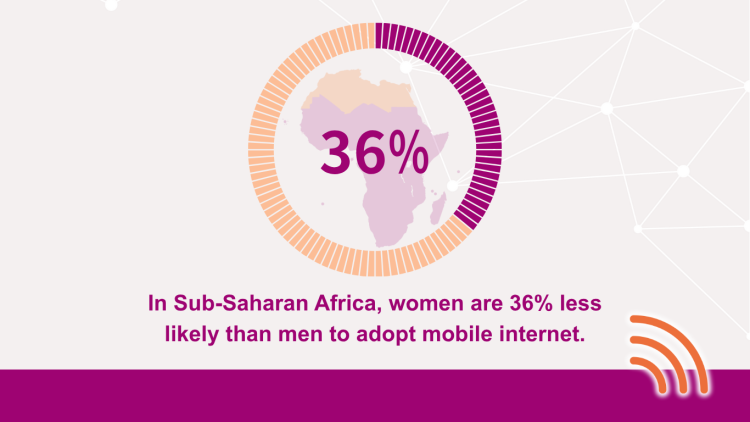
iPRIS has, from the very beginning in 2023, involved more than 30 NRAs from Sub-Saharan African countries in the project phases, providing them with support to improve their governance practices, collaborate more effectively, and create digital policies that are inclusive and reflect the specific conditions of their respective areas. This goal is crucial in a region where women are still 36% less likely to adopt mobile internet than men, and where digital exclusion is often a reflection of social inequalities (GSMA, 2025). iPRIS aims to tackle such issues by building regulatory capacity, promoting research-based regulations, and promoting gender-sensitive policies, thus ensuring that no one in Africa is left behind during the digital transformation process.
Read about the iPRIS fifth cohort's Europe phase in Sweden earlier this year here
Day 1: Reaffirming Africa’s digital transformation commitment
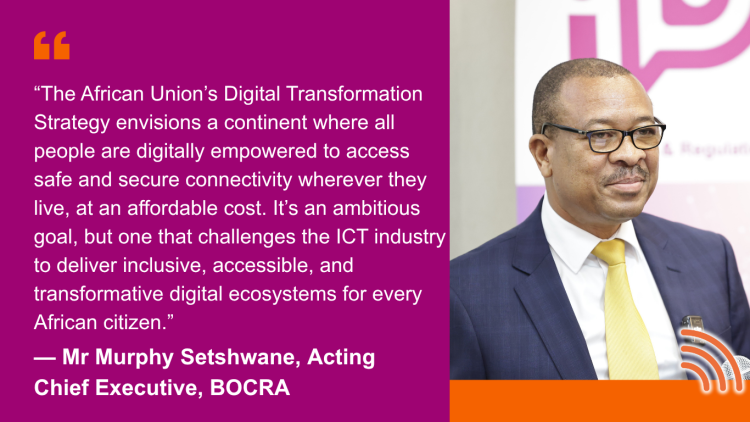
On Day 1 in Botswana, Mr Murphy Setshwane, the Acting CEO of BOCRA, pointed out that harmonised and forward-looking regulation is essential for Africa’s sustainable digital future in his opening remarks. He referred to the African Union's Digital Transformation Strategy as a roadmap that will bring about the envisioned connectivity that is inclusive, affordable, and secure for all.
During this opening session, Mr Brian Mwansa from CRASA commended the initiative for its positive impact in the area of partnership among nations:
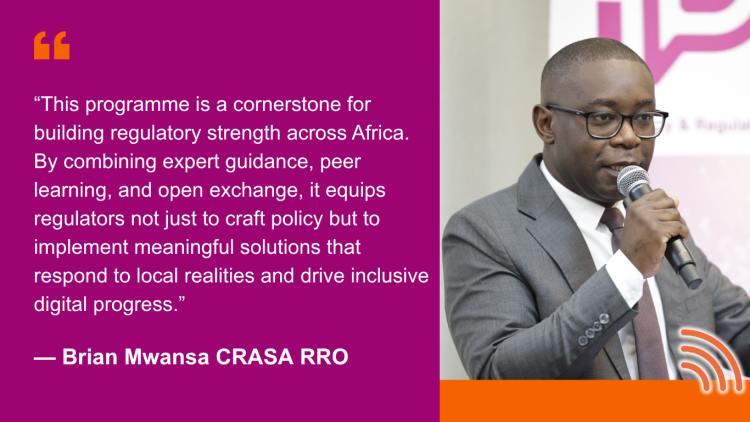
The European Union delegation also reiterated the importance of regional dialogues as a key component of the Team Europe D4D Initiative, which continues to invest in Africa's digital resilience and policy harmonisation. Edna Soomre, iPRIS Project Lead at SPIDER, highlighted the importance of iPRIS as not only a capacity-building but a collaborative platform where the regulators can exchange their experiences, highlight their advancements, and through the latter, gradually set the tone for the regulatory ecosystems that will be inclusive:
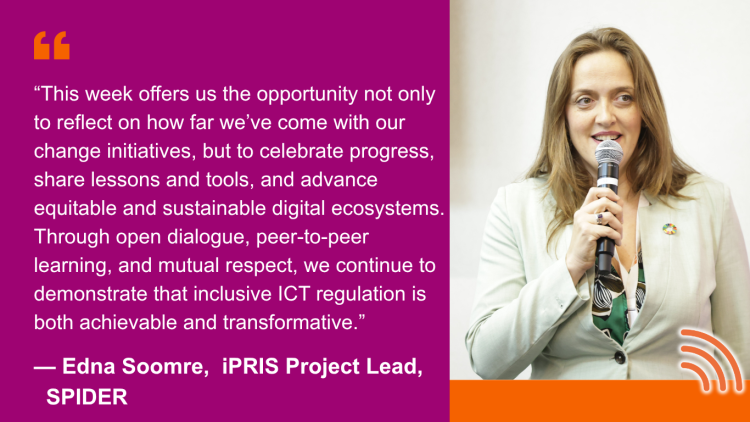
After the warm welcome, each NRA presented and reported on their Change Initiatives (CIs), setting the stage for exchanges among ICT experts, RROs, and the PTS team. The discussions served as a reminder of the cohort’s intention to move towards digital environments that are fair and sustainable across Africa.
Day 2: Learning from global experience- regulation, inclusion, and foresight
The second day of the Botswana Follow-Up Phase facilitated an exchange between African regulators and international partners, where they drew practical lessons from European experiences and adapted them to the continent’s ever-changing and dynamic regulatory environment. The sessions, featuring experts from Telia AB, SPIDER, and PTS, explored the development of regulation in the open market, the critical importance of inclusivity, and the strategic foresight needed to address challenges arising from technological and demographic shifts.
Sofia Donner from Telia AB presented a historical viewpoint on the regulatory shift in Sweden from a state monopoly to a competitive market during the morning session. She explained how the regulators' thinking has evolved through different phases, from infrastructure expansion to consumer choice, and now emphasises security, resilience, and data protection. The session served as an eye-opener for regulators, highlighting the need to balance the competing demands of the market with accountability. It also underscored the importance of protecting public trust in digital services through the implementation of the three principles: transparency, consent, and lawful data handling.
She highlighted that “Telecom governance has moved beyond infrastructure and market dynamics. Today, regulators and operators must define their role in society by ensuring that communication systems serve public interest, national resilience, and inclusive development.”
Dr Caroline Wamala Larsson then took over the stage with a fascinating and insightful discussion on digital governance and inclusivity, supported by her fieldwork in Mozambique. She provided an example of how accessibility issues, ranging from inadequate infrastructure to cultural norms, can exacerbate the digital divide. The main point of her presentation was that inclusivity should not only be considered in the regulators’ designs but also in the infrastructure, planning and innovation policies. She also used iPRIS’s approach to argue that gender-responsive regulation is not a separate agenda but a very basic pillar of fair digital transformation.
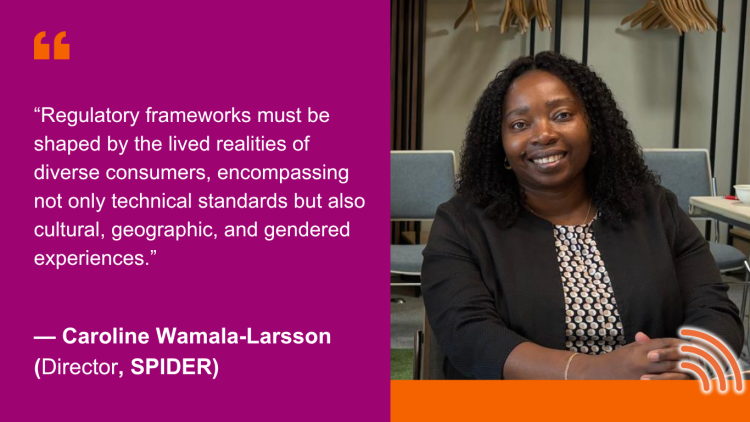
In the same vein, Kerstin Borglin and Katja Sarajeva reintroduced the basics of project management, which had been initially discussed in the European phase in Sweden. They encouraged the participants to improve their CIs with more precise definitions of outcomes, ownership, and sustainability. A number of regulators used this session to measure their progress, refine their implementation roadmaps, and thus guarantee that the iPRIS discussions will result in actual institutional results, in terms of being measurable.
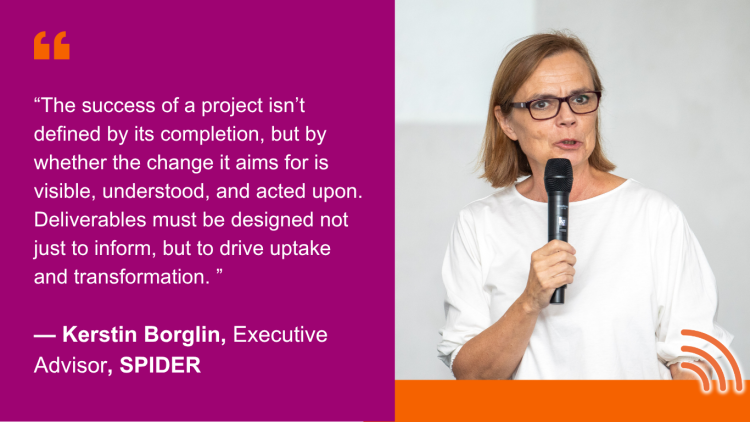
The day ended with Bengt Mölleryd, who advocated for strategic foresight as a tool for readiness. He offered participants a walkthrough of the techniques, such as horizon scanning, scenario planning, and visioning, the tools intended for regulators to be ahead in shifts of markets, demographics, and technology. His session encouraged participants to cultivate diverse perspectives within their institutions and to view foresight not as prediction, but as preparation for the unknown.
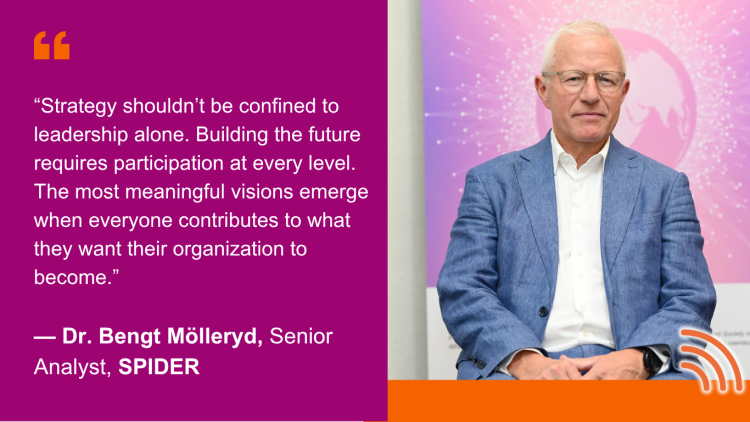
Day 3: Peer exchange and regional collaboration in action
Peer learning and targeted collaboration marked the third day of the Botswana Follow-Up Phase, involving NRAs that worked closely with their respective RROs — CRASA, EACO, and WATRA — plus iPRIS coordinators from SPIDER and the PTS.
The day was structured around small group sessions, which allowed each NRA to deliver detailed presentations of their CIs to get personalised feedback and to hold discussions on practical ways to deal with the implementation challenge. This format led to more profound discussions about ways to measure country-level impacts of strategic plans. The RRO, SPIDER and PTS teams were instrumental in linking these conversations to the global regulatory practice; they steered the teams through the facets of institutional resilience, impact measurement, and long-term policy sustainability.
Here are a few photo highlights from the sessions:
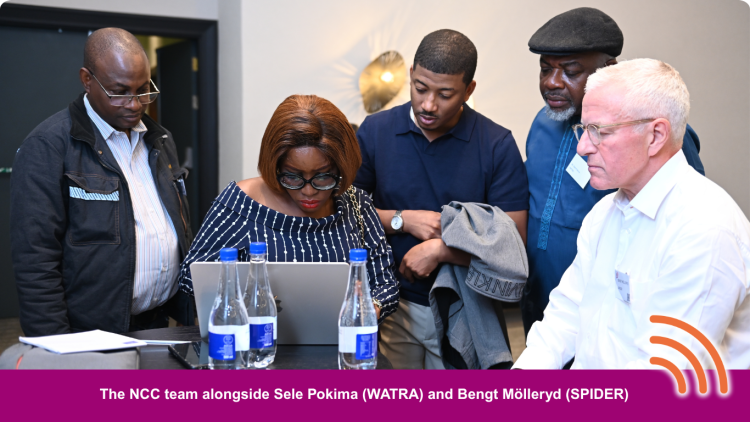
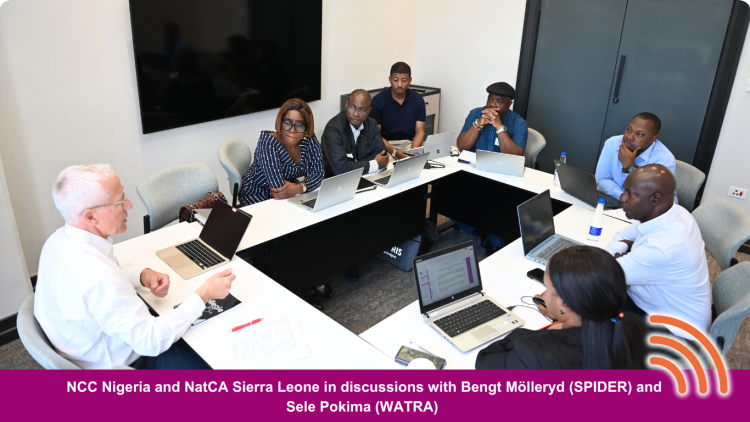
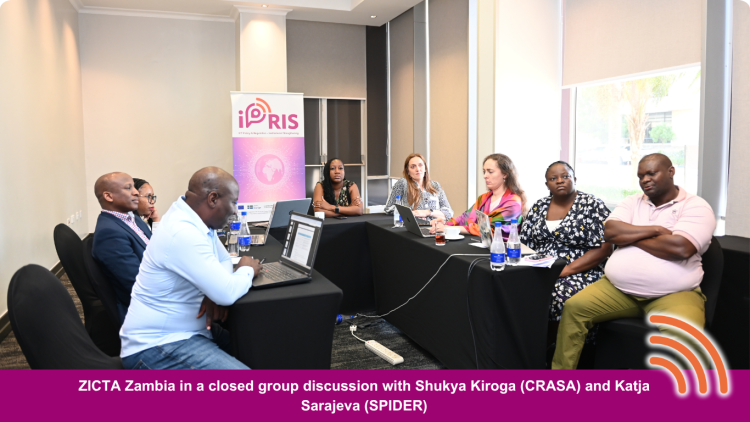
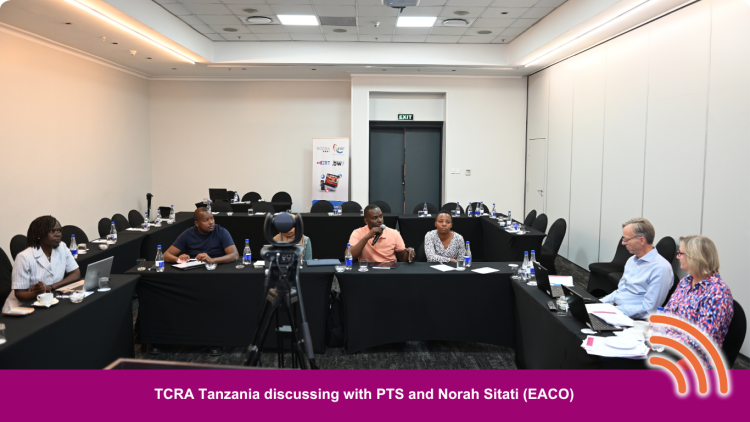
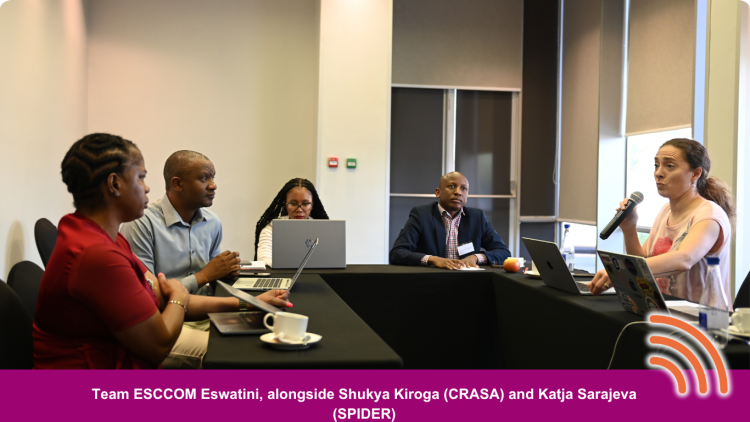
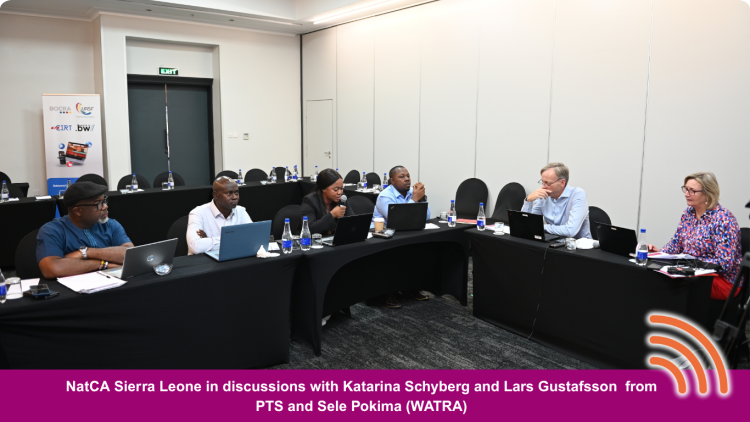
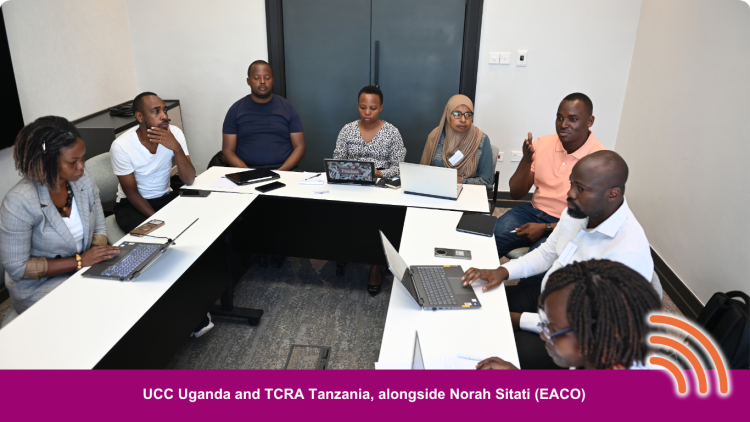
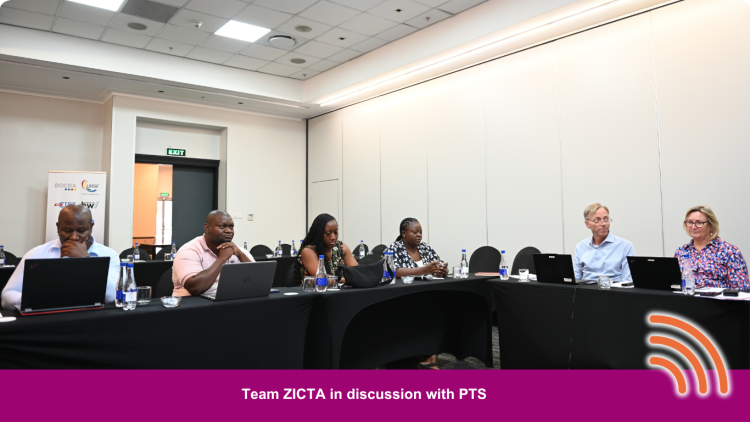
Day 4: The Way Forward and Closing Reflections
The morning session focused primarily on 5G and high-performing networks, which were regarded as the main factors driving the digital transformation in Africa. The experts from Ericsson discussed not only the evolution of the mobile network but also the significance of 5G in smart manufacturing and other sectors. They pointed out that Africa's young population is a plus, and if investments in policy, infrastructure, and skills development are made in time, the continent can witness a digital revolution.
Efosa Aigbe from Ericsson revealed that "Africa’s youth are accelerating technology adoption across the continent. By equipping them with digital skills and building high-performing networks, we’re laying the foundation for a new era of industrialisation and connectivity."
Meanwhile, the Nigerian Communications Commission, as a regulator, mentioned its national 5G policy, and the discussion also involved spectrum allocation, deployment costs, and the necessity of collaboration among the stakeholders. One of the points made repeatedly was that in Africa, connectivity is not just a service anymore but rather the base for industrial and social transformation.
The program then transitioned to the "Way Forward" sessions, which have become a hallmark of every iPRIS round. Each of the six regulators taking part showed the new versions of their Change Initiative (CI) roadmaps, discussed progress they had made since they started together and the stories that were drawn from interactions with peers. The discussions were characterised by openness, practicality, and collaboration and thus uncovered both the difficulties and the inventiveness of the teams involved. The day ended with shared moments at the Mokolodi Nature Reserve, as they continued to network with a shared goal grounded on trust and the idea of inclusive digital development.
View more highlights and reflections below:
iPRIS is coordinated and implemented by SPIDER in strategic and technical partnership with the Swedish Post and Telecom Authority (PTS) and Institut luxembourgeois de régulation (ILR), as well as ARTAC, CRASA, EACO, and WATRA.
iPRIS is funded by the European Union, Sweden, and Luxembourg as part of the Team Europe Initiative “D4D for Digital Economy and Society in Sub-Saharan Africa” (Code: 001).
